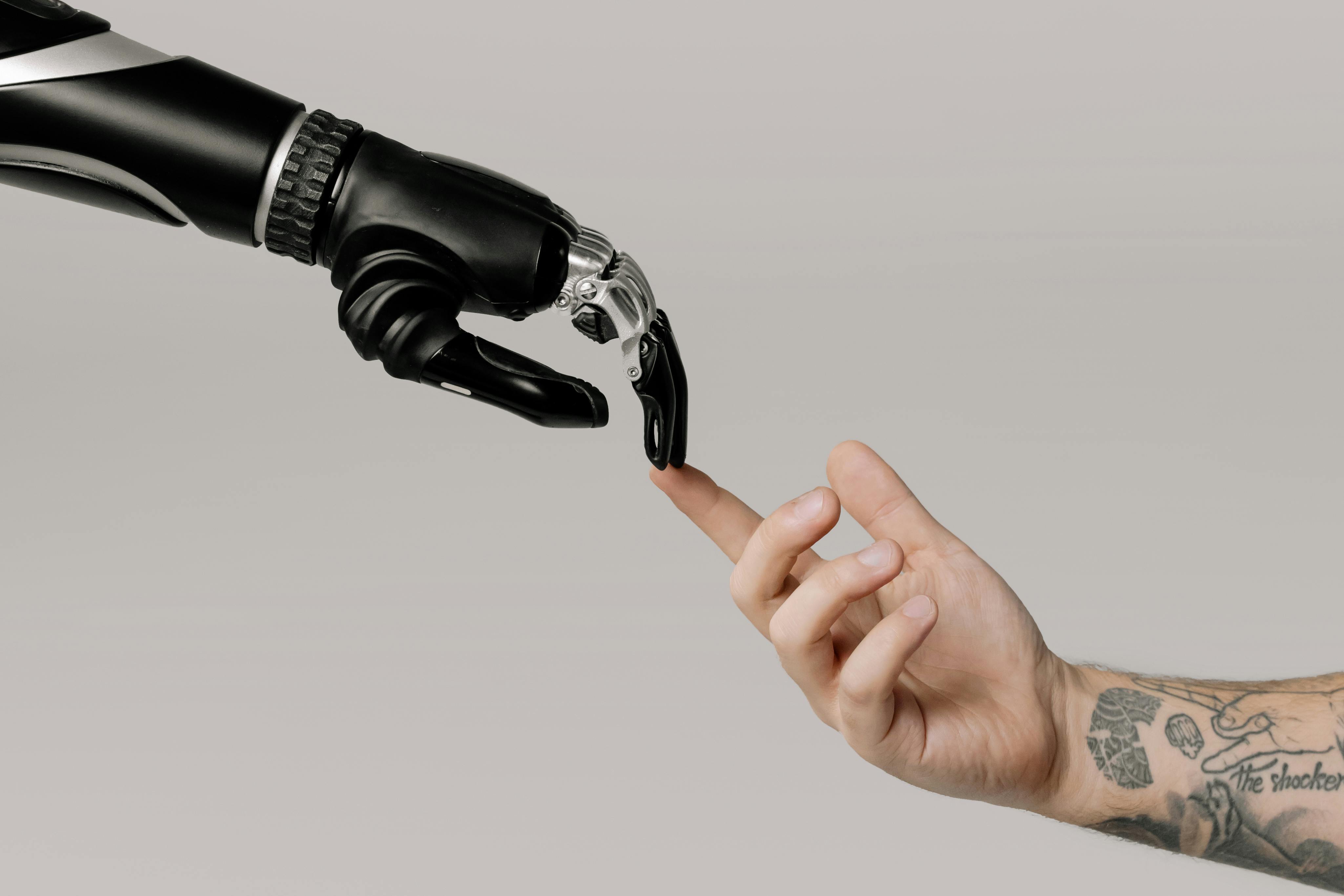The Future of Shopping: AI, AR, and Virtual Try-Ons

Certainly! Below is a 1000-word SEO-optimized blog on the topic:
“The Future of Shopping: AI, AR, and Virtual Try-Ons”, using EEAT principles (Expertise, Experience, Authority, Trust), SEO best practices, and engaging emojis for higher reach, attraction, and engagement.
The future of shopping has officially arrived — and it's smarter, faster, and more futuristic than ever! 🚀
With the rapid rise of AI (Artificial Intelligence), AR (Augmented Reality), and Virtual Try-On (VTO) technology, shopping is evolving from a physical chore into a personalized, immersive experience. Whether you're browsing fashion, makeup, or furniture, these innovations are changing how we see, feel, and buy.
In this blog, we’ll explore how these technologies are shaping the future of retail, what this means for consumers and businesses, and why embracing them is not just a trend — it's a revolution. 🌐
🤖 What Is AI, AR, and Virtual Try-On in Shopping?
Before we dive into the impact, let’s quickly define each of these tech terms in a shopping context:
🧠 AI (Artificial Intelligence)
AI powers recommendation engines, chatbots, inventory forecasting, and personalized offers. It learns from your behavior to suggest products you’re more likely to buy.
🌟 AR (Augmented Reality)
AR overlays digital elements into the real world using your phone or smart glasses. Think of seeing a sofa in your living room before buying it or testing lipstick on your face using your phone camera.
🕶️ Virtual Try-On (VTO)
This is a type of AR experience that allows users to “try on” clothes, glasses, shoes, makeup, and even jewelry—virtually—before purchasing.
💡 SEO Tip: Include high-ranking phrases like AI in retail, AR shopping experience, virtual try-on technology, and future of e-commerce throughout your content.
🛒 How AI Is Revolutionizing Shopping
AI is the brain behind the smartest retail experiences today. Here’s how it's changing the game:
✅ 1. Personalized Shopping Journeys
AI studies user behavior—clicks, search queries, and past purchases—to create tailored recommendations.
Example: Amazon or Netflix-like suggestions for what to buy next.
🧠 2. Smart Chatbots & Virtual Assistants
AI-powered chatbots offer 24/7 customer service, helping users track orders, find products, and get support—instantly.
📊 3. Predictive Analytics for Sellers
AI helps retailers forecast trends, manage stock, and reduce returns, all while boosting customer satisfaction and profits.
🌈 AR: Making Shopping Interactive and Immersive
AR turns flat, static shopping into a 3D, lifelike experience. No more guessing if that chair fits your space or how a dress will look on you.
🛋️ 1. See It in Your Space (AR Furniture/Decor)
Retail giants like IKEA and Wayfair let users use their camera to see furniture in real rooms before purchasing.
💄 2. Virtual Makeup and Accessories
Beauty brands like Sephora, L’Oréal, and MAC offer AR try-on tools for lipstick, eyeshadow, and more—so users can try hundreds of shades without touching a thing.
🧥 3. Clothing Try-Ons
Apps like Zara’s AR experience and Snapchat’s shopping lenses allow users to “wear” an outfit using only their camera. 🕶️👚
AR enhances consumer confidence, reduces returns, and creates a wow factor that keeps people coming back.
🕶️ Virtual Try-Ons: Try Before You Buy—From Anywhere
Virtual Try-On (VTO) is one of the most powerful tools in modern e-commerce.
📱 1. Try Before You Buy
Shoppers can virtually wear eyeglasses, hats, shoes, or jewelry through a mobile app or website camera. Try before you buy — no fitting room needed! 🛍️
📉 2. Reduce Returns
Sizing and style mismatches are a leading cause of online returns. VTO gives shoppers a realistic preview, leading to more accurate purchases.
😍 3. Boost Engagement
Virtual try-ons are fun and highly shareable, encouraging social interaction, brand loyalty, and viral exposure.
💡 Example: Warby Parker and Gucci both allow customers to try on glasses using AR filters — right on their face via smartphone.
📈 The Benefits for Shoppers and Businesses
Here’s how AI, AR, and VTO create a win-win experience for both sides:
🎯 For Shoppers:
-
🔍 More accurate buying decisions
-
🧠 Personalized product recommendations
-
🕒 Faster, smarter browsing
-
💬 Instant support from AI assistants
-
👗 Fun, interactive try-ons
🛍️ For Businesses:
-
📊 Better conversion rates
-
💸 Fewer returns
-
🛒 Increased cart size
-
🚀 Higher customer satisfaction
-
📢 Increased brand shareability & visibility
📲 Real-World Brands Using This Technology
The future is already here — and these brands are leading the charge:
-
Nike – AR foot scanning to find your perfect shoe size 👟
-
L’Oréal Paris – AI and AR makeup try-ons 💄
-
Amazon – AI-powered recommendations & AR home previews 📦
-
Gucci – Virtual sneakers via AR to try on and share 🧢
-
Sephora – One of the pioneers of AR beauty try-ons 💋
💡 What's Next in Smart Shopping?
The innovation won’t stop here. The next 5–10 years will likely introduce:
🧠 AI-Powered Stylists
Imagine a personal fashion assistant that knows your size, style, and even upcoming events.
🌐 Metaverse Shopping
Virtual malls with avatars trying on clothes, interacting with digital assistants, and attending product launches in a fully virtual world.
🧬 Hyper-Personalization
AI will soon create customized product suggestions based on mood, weather, occasion, and even emotional state!
🔐 Trust, Privacy & EEAT Considerations
While the tech is amazing, shoppers still care deeply about privacy, trust, and transparency. Here’s how businesses can build that:
-
✅ Clear communication about data usage
-
✅ Transparent AI ethics
-
✅ Strong customer support alongside automation
-
✅ Verified product reviews and authentic influencer marketing
-
✅ Expertise from certified developers and tech leaders
👩💻 EEAT Reminder: Ensure your brand shows expertise, has authority in the field, creates accurate and up-to-date content, and earns trust through transparency.
🧭 Final Thoughts: The Smart, Stylish, and Seamless Future 🛍️💡
AI, AR, and virtual try-ons are not just innovations — they’re transformations. The future of shopping is convenient, immersive, and intelligent. From fashion to furniture, consumers now expect hyper-personalized experiences, real-time support, and interactive product previews.
As businesses embrace these tools, those who stay ahead of the curve will thrive, while those who ignore them risk being left behind. 🕳️🐇
So whether you're a shopper enjoying the new tech or a seller preparing for what's next—the future is already in your hands. Literally.📱
🖊️ About the Author
Syed Khuzaim Faheem is a tech-focused digital content writer with a passion for exploring how artificial intelligence, augmented reality, and smart technologies are reshaping consumer behavior. With deep insight into retail innovation and future trends, he helps brands connect with tomorrow’s shoppers — today.
